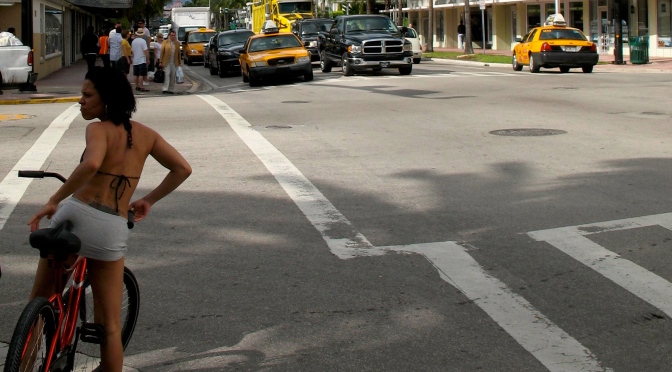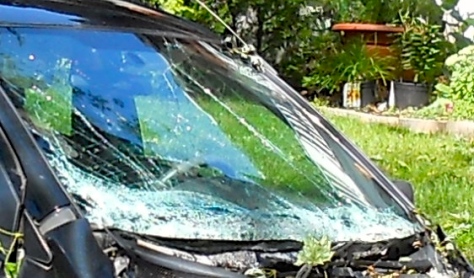The Chronicle
Chris Macalino
I’m going to start with the grape… This note took a while because I was afraid that I’d be wrong about The Chronicle. I knew the produce this year would yield the sweetest fruit and so I tested this theory. The nearest fruit I had available was at home and yes, they were just right. When I took that piece from my kitchen fruit bowl, I whispered in excitement, “It’s possible…”
Maybe I just felt drawn to the possibility of The Chronicle, knowing something not everybody would, a newsworthy story just popping up. So I brushed off what hesitation kept holding me back and jumped at the chance to learn something: The only thing to fear was agoraphobia. This realization motivated me to liquid courage.
The next grapes I caught were at my nephews Christening, it was summer in The Children’s Museum at The Forks. I worked up a thirst and the fruit took me; they were marvelous. I became certain that The Chronicle was a miracle with size and grandeur. I nearly hogged all the berries! Thinking back, it really wasn’t even summer, it was actually before or after beach season. It sure felt like summer because they were so damn’ good. I got a little intoxicated by their flavor.
My cousins and uncle were there too, we found our way at about two minutes beyond the parking lot. The location held a discovery, an out of sight nursery of fruit trees. I guess a chapter of growers had a roll to show everyone an orchard of a new friendly variety. I promised myself that when these trees began to bear fruit, I’d let them be and then there will be enough for an entire party.
(A great art critic can literally predict how a painting would taste, simply by the colors of the materials used on a panel surface. This dates back to the alchemical presence of organic and mineral parts for making paints. Egg-yolk was always used for yellow and egg-whites were saved for other colors. Egg-shells made amazing blues and flowers were quite remarkable for hot and warm colors like orange or red… Zests, saps, nectars, and mosses were also used for bases when creating a whole palette.)
The color of grapes varies with its exposure to the sun; similar to apples, peaches, and pears. One cheek of the fruit may appear darker or lighter compared to another side of the fruit. The skin of the grape is also very different from its flesh / the inside of the fruit / some refer to these very sweet parts as “treasure”.
The different parts of a berry (which includes the skin, the treasures, and seeds) are made to take in the elements: We have’ natural sources like water moisture, rain, and wind. We also have the periodic elements from beneath the soil which tend to rise-up chemically and affect the berries. Then there is The Sun and its rays, shining down these grapes for our vintage… The best wine just feels brilliant, to think they’ll be remembering all of this year each and every time we have this kind of Chronicle. It might last an eternity.
Some of us are new beginners in The Chronicle – the slang term for a new beginner is newbie. Speaking of winemaking, I like to think of that as related to “new berries”.
I can’t tell the name of the first wine that I had for 2015 but I remember it was white. There was a new section at the grocery store, the addition of a Liquor Mart. The clerk had mentioned the reds would arrive during November. So I went to the next Liquor Mart just to see if there was more I could learn. She was right! All the 2015s were white.
My University training came in handy that day… I was dreaming of cellars, body mechanics, and how a lot of adolescents would spend their time learning subjects in these kinds of places. They would bend their knees with enough balance to sustain minutes, holding a stance to read the right wine. I imagined Picasso must have started his career in cellars, then when he completed training, became the best in the world. I’d like a bottle from that period.
This Christmas, I found the first red wine I could afford. It’s from Australia with the name of a marsupial on the label. The clerk said I had to wait three years for the 2015s to come in… That was the good news, it’s true that it will be awhile. (3+ years is just enough time to heal.) It almost feels like everyone who might know about The Chronicle is like a friend or a drinking buddy from another galaxy far from my perch at The Inn.
An article on the topic did post statistics that most of the vintage would be consumed in the year it’s produced: This proves one year is preceded and followed by many years of skill and soul searching.
I wouldn’t call it a perversion but I believe that all bottles should literally have a ship inside of them. One could drink the bottle then keep it as a work of art! They could do all sorts of fantastic things with bottles and modern technology like make them bigger and fancier. This ship-in-a-bottle-wine could be made entirely out of glass… shipbuilders could retire at vineyards. Truly, I believe physics makes anything possible like sharing as an option.
I once thought that opening an old bottle and pouring it down the ground through a filter was a neat way to free a genie. Enjoying a drink was supposed to be a wish come true but all I’ve ever wished was to be is a great artist* There are different kinds of artists and I just want to be one of them. I’ve tried everything from helping to working and teaching but alas, it never continues for very long. Something always cripples my brain or breaks my heart. As I write this, part of me worries about being a “Fish” like the inspiration for Moby Dick or Old Man and the Sea.
I’m scared to think that people around would learn about my drinking and perversely novelize me as some kind of vampire. The great writers stopped doing that ever since Romanticism and Herman Melville’s period and also Ernest Hemingway’s adventures. I suppose Jung said it best – that fear comes from a psychological instinct -where wine has a cognitive irrational association with blood – and the oxymoron of wine as blood gets mythologized into vampirism – then subversively through the universal insight of The Surrealists we get to their point of wine good, “Ahoy!” We’re saved for it takes a good man to feel drunk off wine.
I’m just an uncle which means I’m not responsible for anyone but myself… and of course I know this is not true in light of individuality. Even in my failure, I still know there is a responsibility large enough for me to care about, to keep up with, and fulfill any promise of talent in my family.
I’m partly-responsible for my nieces, nephews, godchildren and those I take under my wing. I’m supposed to be the guy who teaches them how to control their drinking, and be careful of over-eating, or at least figure out a way to explain why life is a dream! I always have to be around to tell them that their problems can be solved. “Whatever vices they have must be lead to virtue.” Kind of like sex: It’s a biological need to make love but it’s also a matter of ecology to refrain from being The One.
There has to be somebody out there who could do the math… (One row field at the country vineyard could amount to one bottle. Then all those grapes are used to make wine, and after a period of time, wine is mixed in with other wines to produce a vintage. Soon, it will be bottled up and ready for logistics.) There’s still an opportunity to go to those fields and sunbathe, feel the ecstasy of being free then years later remember the brightness of those summer days. Count the rows their length and width with height, show yourself the theorem for The Chronicle. It’s an event for the ages, there’s a party and everyone is invited! It’s re-materialization as in “Remat” which is the belief that heaven can be described: like how particles or light waves and magnetic fields can make electrons into photons that can form into beings who are similar to our shape… It’s closing time?





















